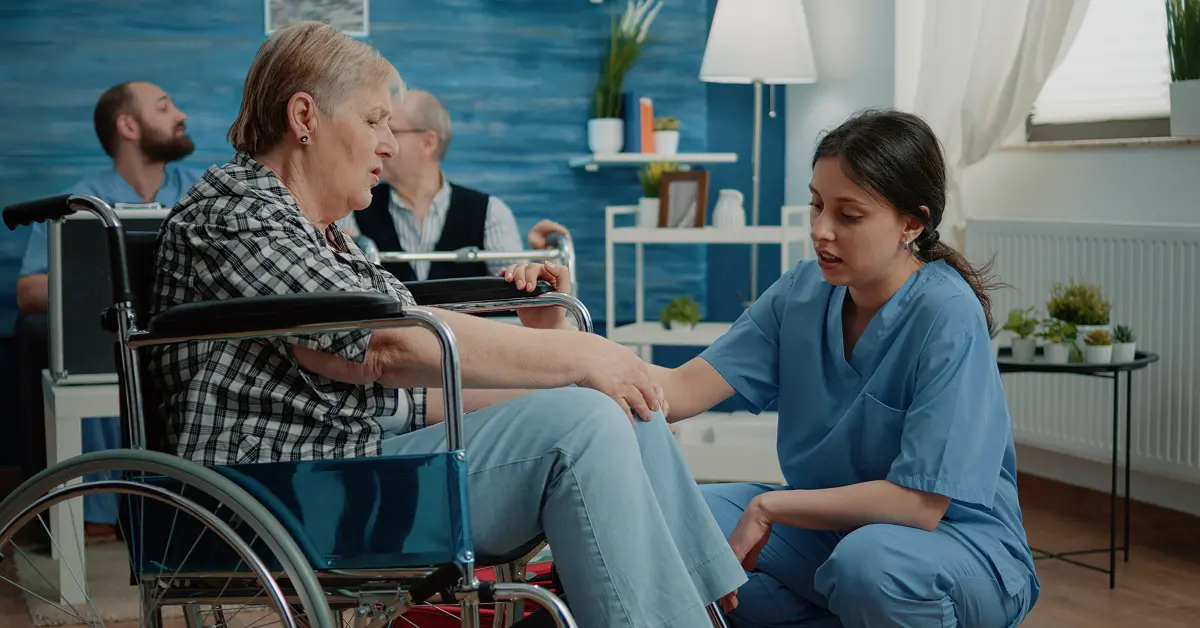In India, the concept of hospice care is gaining momentum as more families seek compassionate support for loved ones facing terminal illnesses. A hospice caregiver plays a crucial role in ensuring that patients receive not only medical attention but also emotional, psychological, and spiritual support during the final stages of life.
If you’re drawn to providing comfort and dignity to those nearing the end of life, becoming a hospice caregiver may be your true calling. In this blog post, we’ll explain what hospice caregivers do, the qualifications required in India, the steps to get started, and the personal qualities that make a difference.
Understanding Hospice Care
Hospice care is specialised medical care focused on providing relief from the symptoms and stress of a serious, life-limiting illness. Unlike curative treatment, hospice care aims to improve the quality of life for both the patient and their family. Services can be offered in the patient’s home, a hospice facility, or a hospital.
Hospice care typically includes:
- Pain and symptom management
- Emotional and psychological support
- End-of-life planning
- Support for family members
- Palliative care services
Who Is a Hospice Caregiver?
A hospice caregiver is someone who provides care to individuals in the final phase of a terminal illness. They help patients live as comfortably and peacefully as possible. Caregivers may be professionals (such as nurses or health aides) or family members trained in basic caregiving.
Common Duties of a Hospice Caregiver
- Personal Care: Assisting with bathing, dressing, grooming, feeding, and mobility.
- Medical Support: Helping with medication schedules, monitoring symptoms, and reporting changes to medical professionals.
- Emotional Care: Offering companionship, listening to the patient’s concerns, and providing reassurance.
- Spiritual Support: Collaborating with chaplains or spiritual advisors when needed.
- Family Support: Educating and supporting the family through emotional challenges, grief, and bereavement.
Essential Qualities of a Good Hospice Caregiver
Not everyone is suited to hospice caregiving. The following qualities are essential:
- Empathy and compassion
- Emotional strength and patience
- Good communication skills
- Respect for cultural and spiritual beliefs
- Commitment to providing dignity in death
How to Become a Hospice Caregiver in India
In India, hospice caregiving is growing as part of palliative care services. Here are the steps to become a hospice caregiver:
Complete Basic Education
A minimum of 10th or 12th standard education is typically required, especially for support roles. However, many institutions prefer candidates who have completed higher secondary education or nursing courses.
Pursue Relevant Training or Certification
Several organisations offer palliative and hospice care training in India:
- Indian Association of Palliative Care (IAPC)
- Pallium India
- AIIMS and other government hospitals offering palliative care units
- Certificate courses in caregiving or nursing from NGOs or private institutes
Training usually includes modules on:
- Basic nursing care
- Symptom and pain management
- Communication with terminal patients
- Psychological and bereavement support
- Ethical and cultural sensitivity
Gain Practical Experience
Volunteering or working with NGOs and hospice centres can provide hands-on experience. Examples include:
- Shanti Avedna Sadan (Mumbai, Delhi, Goa)
- CanSupport (Delhi)
- Karunashraya (Bangalore)
On-the-job training in these settings will expose you to real-life situations, helping you build confidence and skills.
Register With a Hospice or Palliative Care Facility
Once trained, you can apply for a position in hospice centres, NGOs, private palliative services, or home care agencies. Many Indian families also hire freelance hospice caregivers through agencies.
Hospice Caregiver Career Path and Salary in India
While hospice caregiving is more of a vocational calling than a high-paying job, there are various employment opportunities.
- Hospice Caregiver Salary: ₹8,000 to ₹25,000/month, depending on experience, location, and whether it’s a live-in or part-time job.
- Senior Caregivers/Nurses: May earn ₹30,000–₹50,000/month.
- NGO and Government Projects: Often provide stipends, training, and accommodation.
Potential Career Growth
- Become a Palliative Care Nurse
- Work as a Hospice Coordinator or Manager
- Get certified as a Bereavement Counsellor
- Lead training workshops for new caregivers
Emotional and Ethical Considerations
Hospice caregiving isn’t just physically demanding — it’s emotionally intense. Watching someone pass away, supporting grieving families, and managing your own emotional well-being are key parts of the role.
Here are some ways to cope:
- Regular self-care routines
- Peer support groups
- Counselling or therapy
- Spiritual practices (like meditation or prayer)
Ethical responsibilities include:
- Maintaining confidentiality
- Respecting patient autonomy and wishes
- Ensuring dignity in death
- Following proper medical protocols
Is Hospice Caregiving Right for You?
You might be well-suited for hospice caregiving if you:
- Feel deeply fulfilled helping others in need
- Can remain calm in emotionally charged situations
- Want to make a meaningful impact at the end of someone’s life
- Are open to spiritual and emotional diversity
- Believe in compassionate dying with dignity
Final Thoughts
Being a hospice caregiver is not just a job — it’s a calling. In India, where family and cultural values deeply intertwine with end-of-life care, the need for trained, empathetic hospice caregivers is growing.
By educating yourself, getting the right training, and approaching the role with empathy, you can offer a profound service: helping someone die with dignity, love, and peace.
Whether you're a family member or looking to build a career in caregiving, hospice care offers a chance to touch lives in the most meaningful way.
Contents
Our 24*7 services
Latest Posts
- What Is Respite Care and Why Is It Important
- Affordable home care for senior citizens in India
- Caring for Seniors with Dementia or Alzheimer's at Home
- Senior Caregiving A Guide for Every Family
- How to Write a Caregiver Resume That Gets You Hired
- How Care After Hospital Discharge Speeds Up Recovery at Home
- How to Get Home Health Care for Seniors Through Medicare
- What Does a Senior Citizen Caregiver Really Do at Home
- How to Care for Elderly Parents with Alzheimer’s or Dementia
- How to Get 24-Hour Care for Seniors at Home



